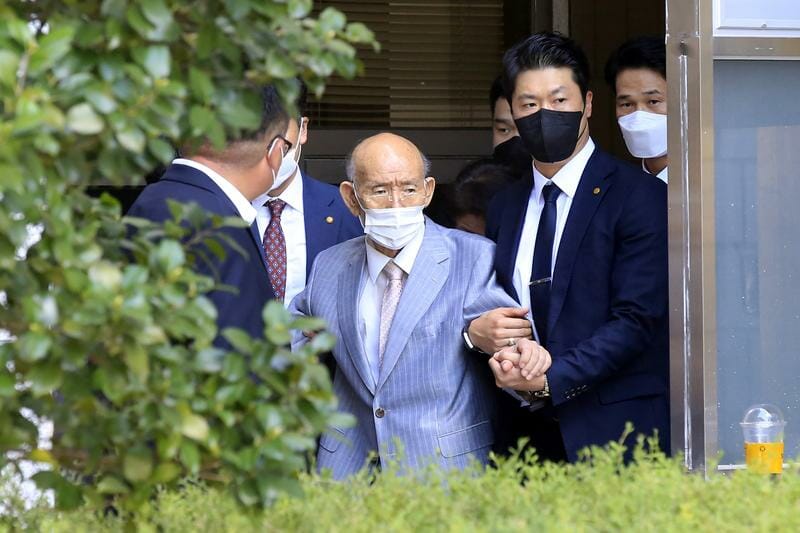Former South Korean President Chun Doo-hwan, whose iron-fisted rule of the country following a 1979 military coup sparked massive democracy protests, died on Tuesday at the age of 90, his former press aide said.
Chun had multiple myeloma, a blood cancer which was in remission, and his health had deteriorated recently, his former press secretary Min Chung-ki told reporters. He passed away at his Seoul home early in the morning and his body was moved to a hospital for a funeral later in the day.
A former military commander, Chun presided over the 1980 Gwangju army massacre of pro-democracy demonstrators, a crime for which he was later convicted and received a commuted death sentence.
His death came about a month after coup co-conspirator and succeeding President Roh Tae-woo, who played a crucial but controversial role in the country’s troubled transition to democracy, died at age 88.
An aloof, ramrod-straight Chun during his mid-1990s trial defended the coup as necessary to save the nation from a political crisis and denied sending troops into Gwangju.
“I am sure that I would take the same action, if the same situation arose,” Chun told the court.
Chun was born on March 6, 1931, in Yulgok-myeon, a poor farming town in the southeastern county of Hapcheon, during Japanese rule over Korea.
He joined the military straight out of high school, working his way up the ranks until he was appointed a commander in 1979. Taking charge of the investigation into the assassination of President Park Chung-hee that year, Chun courted key military allies and gained control of South Korea’s intelligence agencies to headline a Dec. 12 coup.
“In front of the most powerful organisations under the Park Chung-hee presidency, it surprised me how easily (Chun) gained control over them and how skilfully he took advantage of the circumstances. In an instant he seemed to have grown into a giant,” Park Jun-kwang, Chun’s subordinate during the coup later told journalist Cho Gab-je.
Chun’s eight-year rule in the presidential Blue House was characterised by brutality and political repression. It was, however, also marked by growing economic prosperity.
Chun resigned from office amid a nationwide student-led democratic movement in 1987 demanding a direct electoral system.

